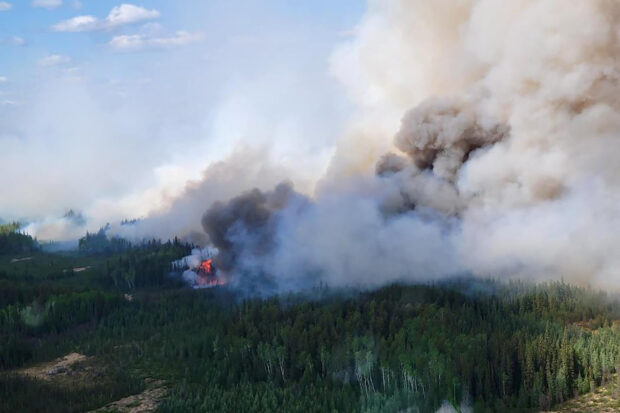
FILE PHOTO: Smoke rises above the southeast perimeter of the Paskwa fire (HWF030) as it burns near Fox Lake, Alberta, Canada May 16, 2023. Alberta Wildfire/Handout via REUTERS/File Photo
The western Canadian province of Alberta on Tuesday declared an early start to wildfire season as a result of an unusually dry and mild winter, allowing the government to put more money and resources into tackling blazes.
Canada endured its worst wildfire season on record last year as 18.5 million hectares (45.7 million acres) burned, nearly seven times the 10-year average, according to the federal government.
READ: City empties as thousands flee huge wildfire closing in on capital of Canada’s Northwest Territories
Alberta is also suffering from drought, and there are 52 wildfires still burning in the province from last year as well as 17 new blazes so far in 2024.
Wildfire season in Alberta tends to peak in the spring and usually officially kicks off on March 1. The province declared an early start this year to better direct resources to those fires already underway, the provincial government said in a news release.
“Alberta is experiencing warmer than normal temperatures and below average precipitation in many areas of the province, leading to heightened wildfire risk,” the provincial government said.
The official start of the season allows Alberta Wildfire to use additional tools like fire bans and other restrictions to help manage risk.
READ: Raging Canada wildfires threaten critical infrastructure, force evacuations
Alberta is Canada’s main oil and gas-producing province, and output has been severely disrupted in previous bad wildfire years, such as 2016, when large parts of the oil sands hub of Fort McMurray were destroyed by flames.
The province is also planning to hire an extra 100 firefighters this year, which would add five new 20-person crews.
Last year, Canada’s roughly 5,500 firefighters were bolstered by hundreds of international firefighters flown in to help tackle the blazes.